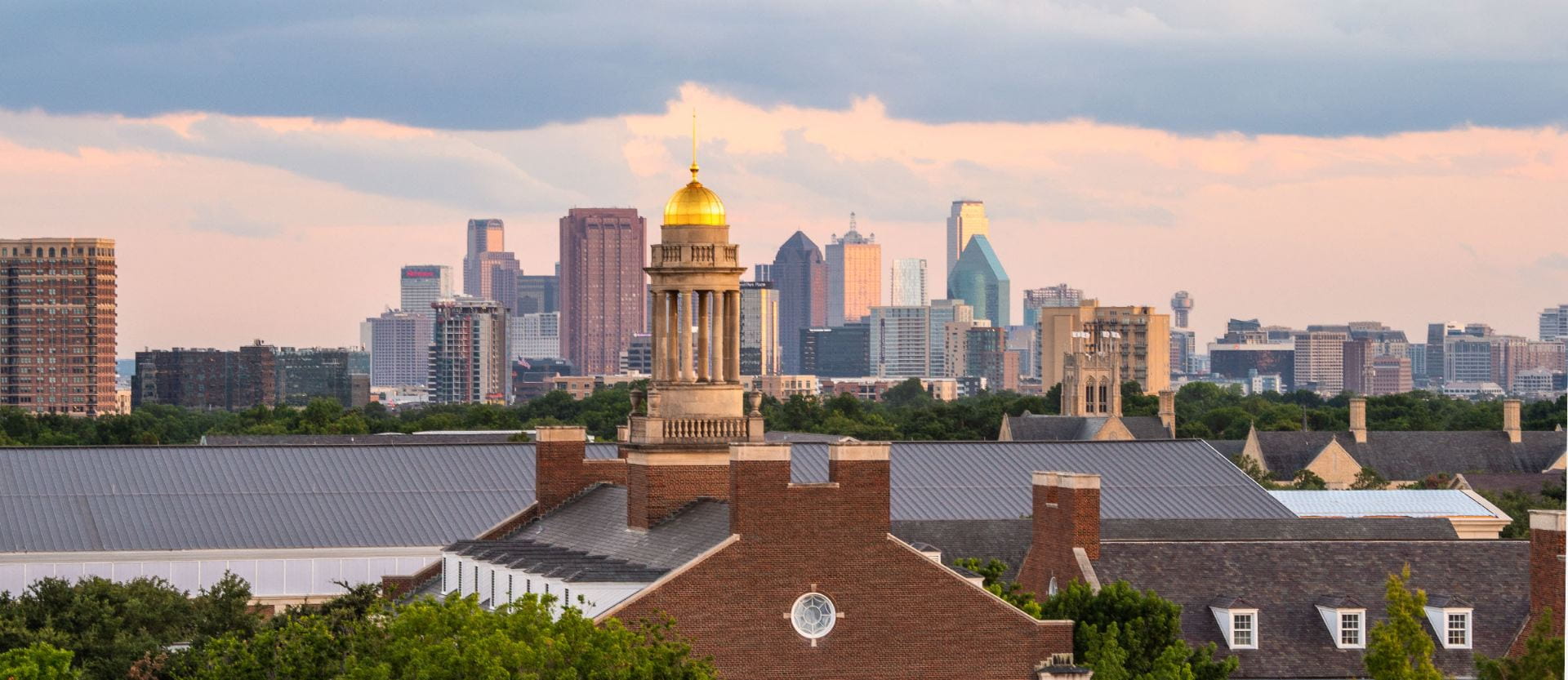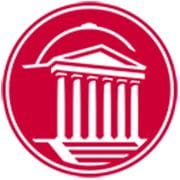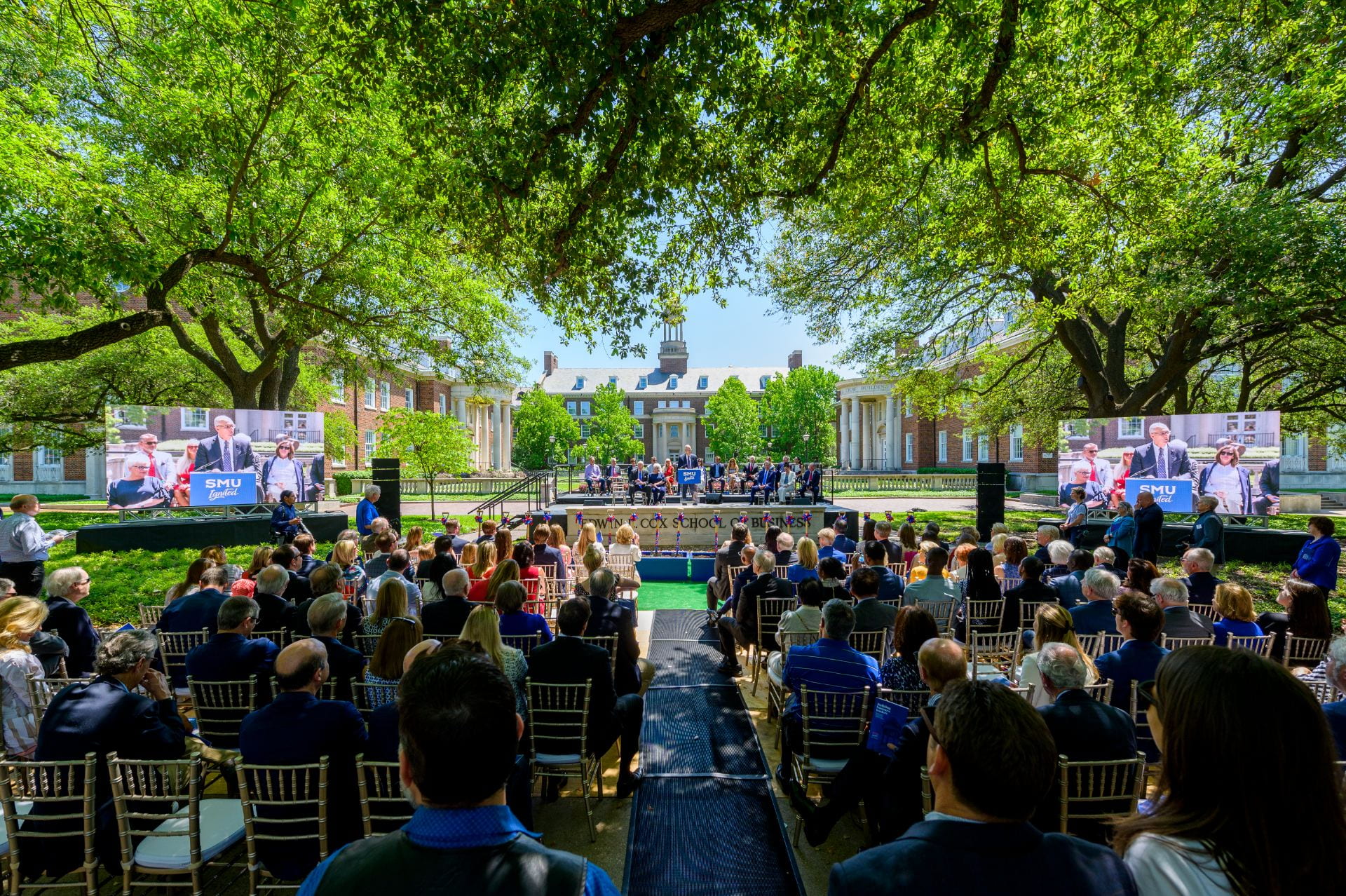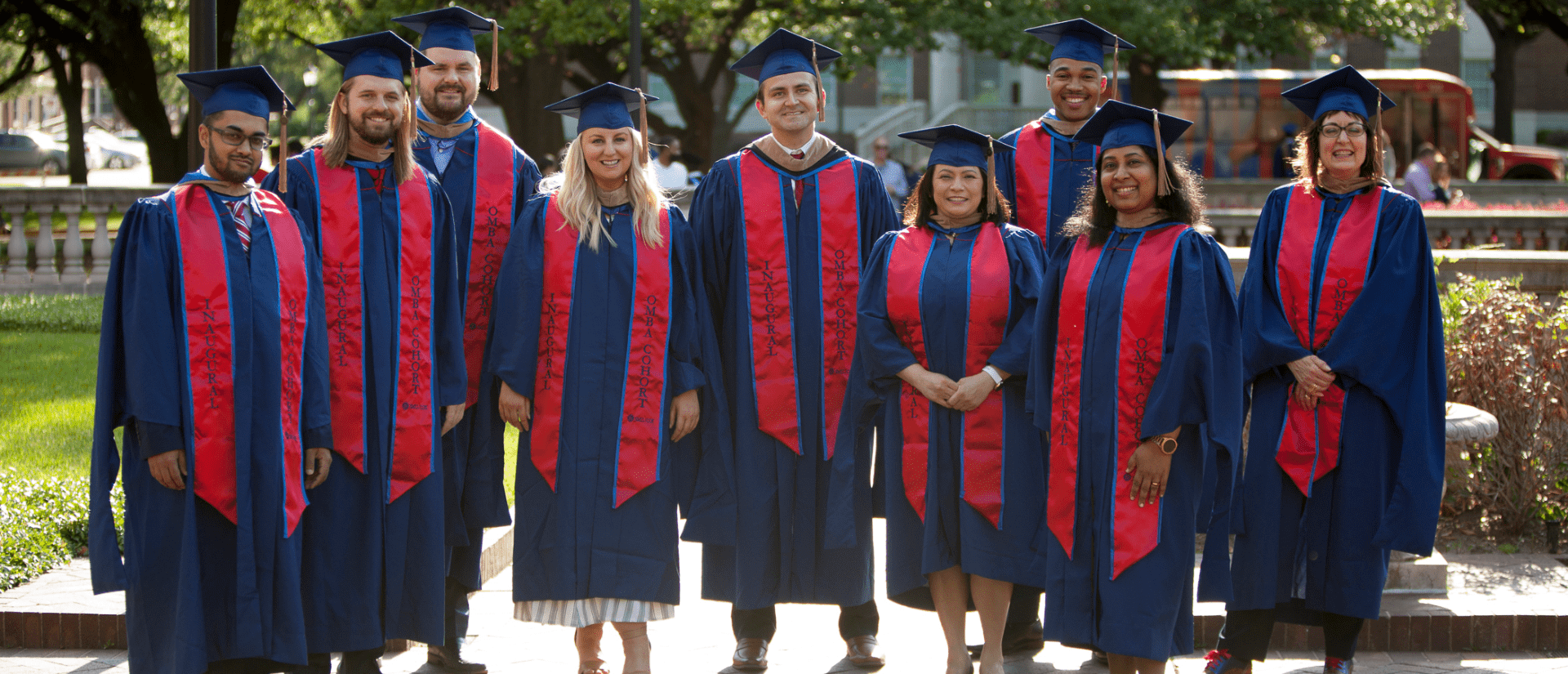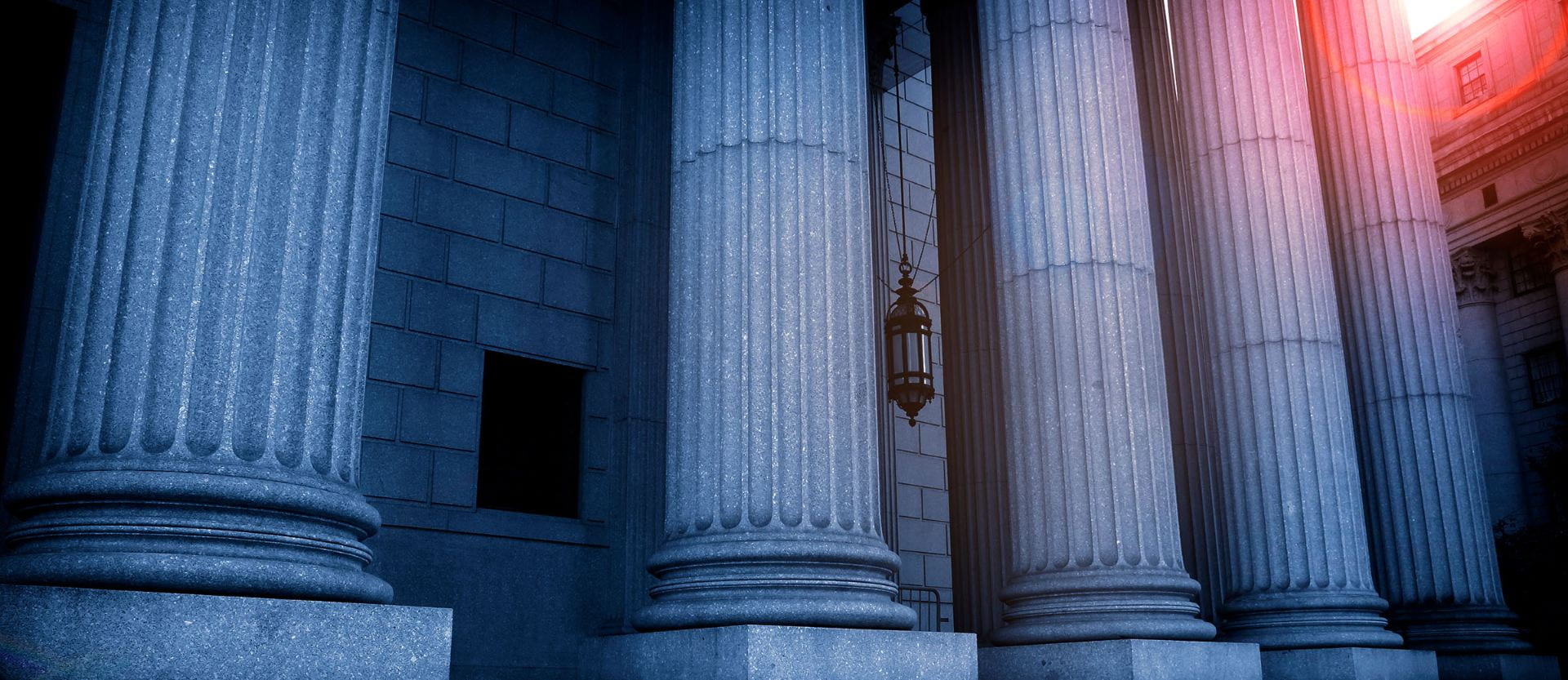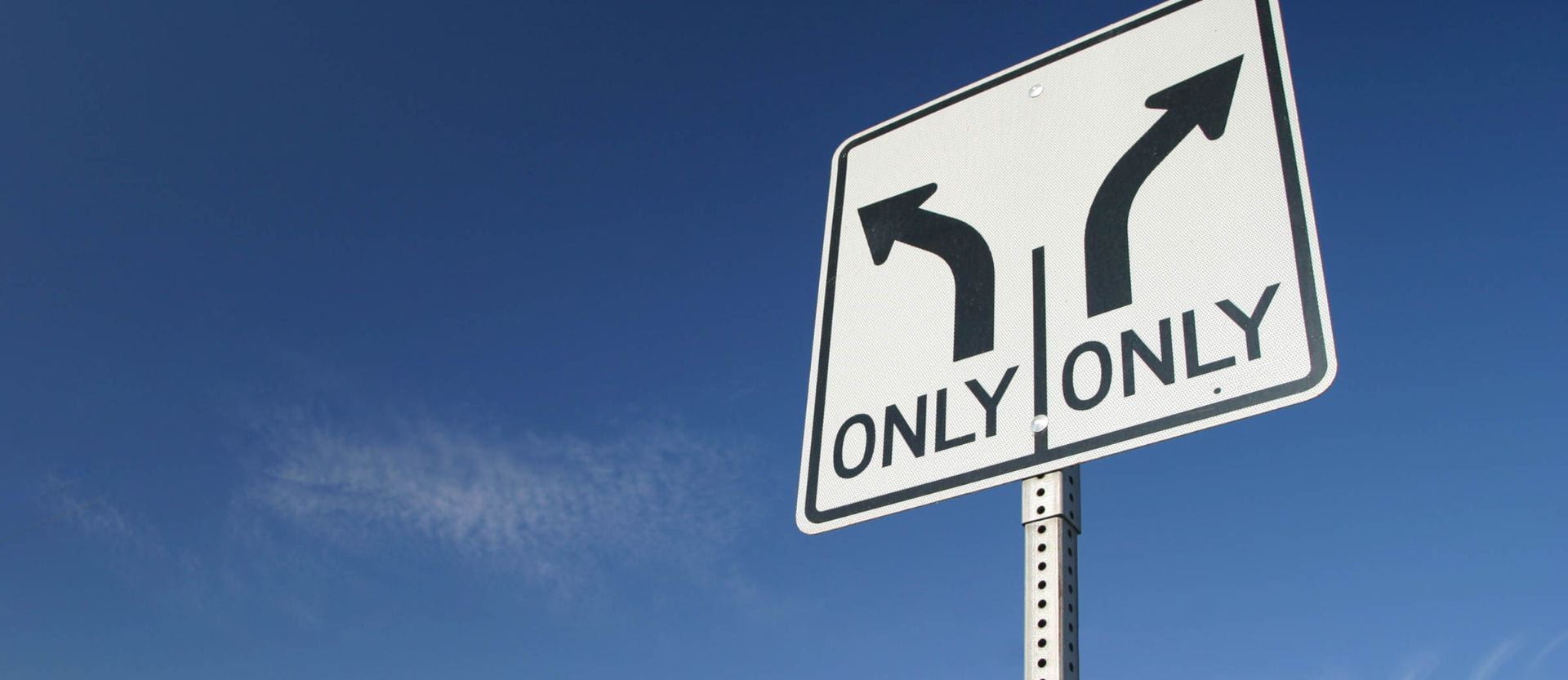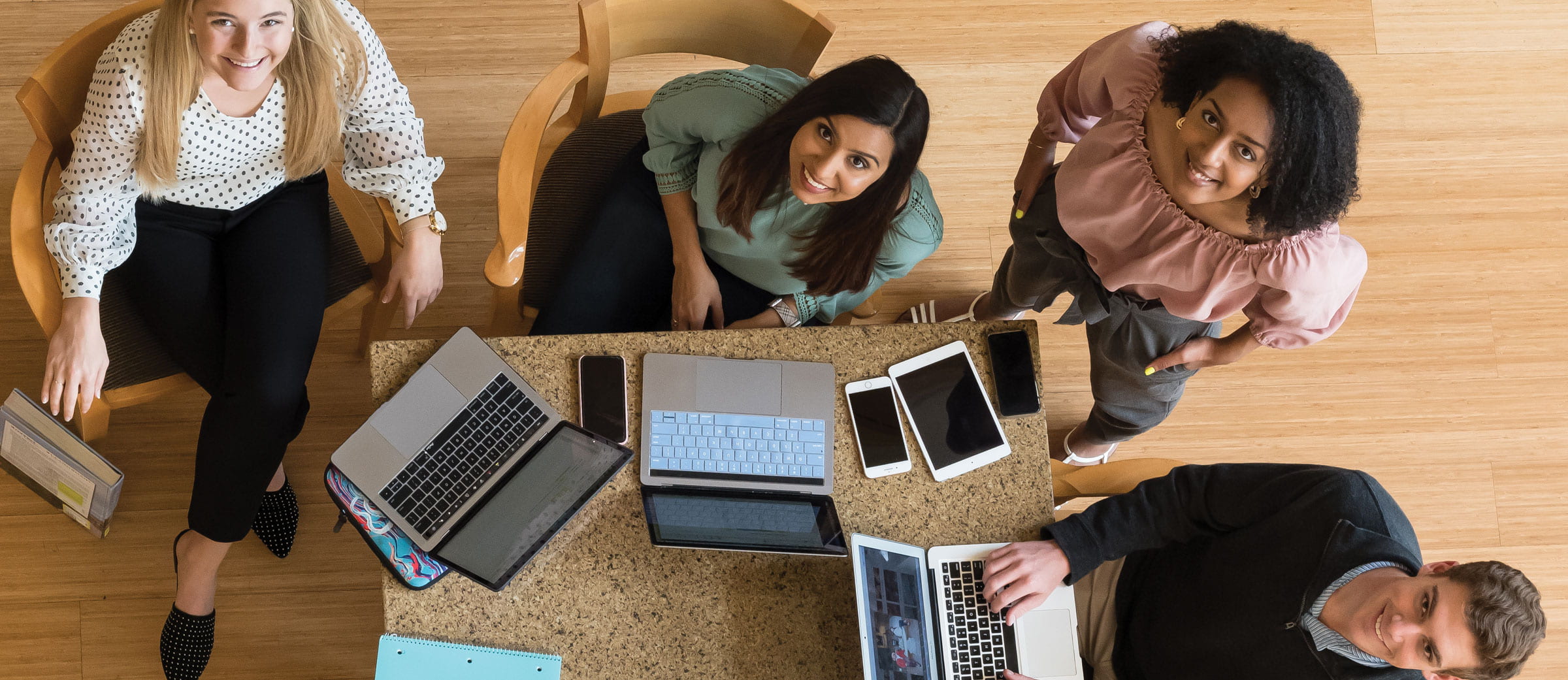In August 2017, as Matt Myers was acclimating to his new role as the ninth dean of the Cox School of Business, he spent some time introducing himself to the Dallas business community. One of his initial meetings was with the editorial board of The Dallas Morning News. His arrival in Dallas paralleled the big news story of the summer: Amazon’s quest for a city that would serve as home to its second company headquarters. The company put the onus on regions across the country to pitch themselves as location contenders. Dallas and surrounding North Texas cities were in it to win. Editorial board members, remembers Myers, asked a pointed question. “They wanted to know how SMU and the Cox School were going to help make the North Texas economic community more competitive.”
The moment reinforced what Myers already knew after only weeks on the job: just how symbiotic the relationship is between SMU, the Cox School and the North Texas business community. They are inextricably intertwined. It was true when the school was a rustic outpost in its infancy, and it’s true now that it’s one of the best, most sought-after business schools in the country.
The Modest Start
On Feb. 20, 1920, the SMU Board of Trustees voted to establish a College of Applied Arts and Sciences that included a business administration department. At the time, Dallas was almost a century removed from its pioneer beginnings along the bank of the Trinity River. The Dallas Chamber of Commerce (now the Dallas Regional Chamber) thought some business education might benefit the city. The relatively new Southern Methodist University campus, just north of downtown, seemed like the best candidate.
Those initial facilities were modest, threadbare. The first classroom was a simple wood-frame structure next to the small engineering and chemistry buildings. In sepia-toned photos from the era, the entire campus consists of a few buildings on a vast, open prairie — with a line of Ford Model Ts in a dirt parking lot. That first year, there were only two business students.
In the century since, the department has become a separate school, upgraded facilities and gone through some name changes. In 2018, some of the faculty, administration and alumni rang the Closing Bell at the New York Stock Exchange to commemorate 40 years bearing the name of Edwin L. Cox.
The Cox School of Business has produced a diverse, high-profile network of alumni. The list includes executives of global companies from American Airlines to Starbucks. Many alumni feature prominently in the history and development of not only North Texas but also a significant part of America — names like Crow, Perot, Thornton, Tolleson, Sewell and Hunt.
The region and the school have always had a complementary relationship. In those early years, when the school was still a speck on the prairie, the city itself was at the end of an industrial revolution, transforming from a largely agricultural center into a modern, self-sustaining business hub. School bulletins from that time advertised courses in accounting, marketing, finance, secretarial training and a “general course in business.”
In the 1930s, Dallas became the financial center of a massive oil boom, serving as home to the many operators and companies that were leading the quest for liquid gold across Texas, and growing consistently despite the toll the Great Depression was taking in other parts of the country. The school grew exponentially. By the end of the decade, there were hundreds of students signing up for business classes every year. There was another parallel growth spurt in the 1950s, around the time nearby Texas Instruments started producing integrated circuits, turning Dallas into a hub of high-tech manufacturing.
In the 1970s, as the region recovered from a decadelong economic lull, the school created the Caruth Institute for Owner-Managed Business — later renamed the Caruth Institute for Entrepreneurship — the first and oldest academic center on the planet. The mission was to teach some of the fundamentals of starting a business to both forcredit students and anyone else in the business community, ages 8 to 80, through a certification program.
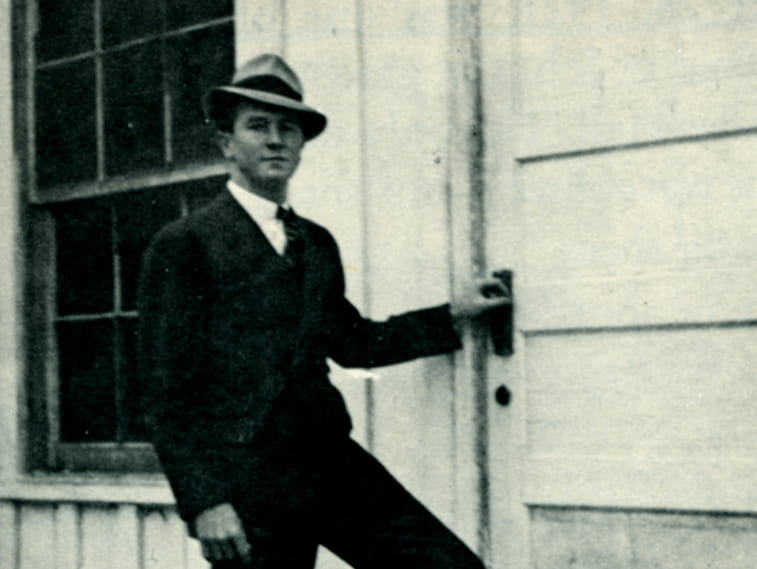
The Inflection Point
With the arrival of Al Niemi in 1997 as the Cox School’s eighth dean, the school entered a new era. Before coming to SMU, Niemi served as dean of the Terry College of Business at the University of Georgia for 15 years. When he lived in Athens, Georgia, in the 1980s and early 1990s, he saw the region recruit and foster national and international corporations — but he also saw it lose out time and again to Dallas.
“There’s no better place in America, I don’t think, for students to study business than the laboratory we have in Dallas,” Niemi says.
The true inflection point for both the region and the school came after the late 1990s. Corporations such as Toyota, pharmaceutical giant McKesson and the multinational oil and gas conglomerate ExxonMobil have planted their respective headquarters in North Texas. As global trade has made the cost of doing business and the regulatory climate more important, the Texas economy has expanded rapidly. Dallas, Austin, Houston and San Antonio all show up near the top of many lists of the fastest-growing parts of the country.
In that same time, Cox went from what was essentially a regional school to one of the premier business schools in the nation, competing with the likes of Emory University and the University of Southern California. It seemed like every year, the new undergraduate and graduate students were even more impressive. And every year, Niemi recruited to the faculty more outstanding recent doctoral program graduates and professionals with decades of experience at the top levels of business. Senior Associate Dean Bill Dillon says that among the biggest draws for potential faculty is the culture at Cox. “We’ve hired people from other schools, at both the staff level and the faculty level. They say it’s a school that’s unique in that regard — that the culture is very participatory. We really do have a community here.”
Dean Myers sees it as more synchronicity with the region. “You’re seeing a real benefit to us because of the Texas economy and what the Texas economy is doing relative to attracting really talented students and businesses and faculty from around the country — even worldwide,” says Myers. “I spent three years in the Midwest before I came here, and it’s a completely different story once you get north of the Mason-Dixon Line. The Midwest and the Northeast are suffering from some pretty significant economic downturns and demographic shifts.”
These days, 70% of undergraduate students at the Cox School of Business come from outside the state of Texas, but 75% of those students stay in Texas when they graduate. “We’re attracting a whole lot of really good talent from around the country because of the quality of life and the opportunities here in Dallas,” Myers says.
SMU and Dallas have grown and thrived together for more than a century, and the Cox School has played a pivotal role in strengthening that partnership,” says SMU President R. Gerald Turner. “The school’s renowned faculty, insightful research and community collaborations have contributed to the region’s intellectual capital and booming ecosystem. Its international rankings and global alumni network have elevated the academic reputation of the school and our University. Programs that spark innovation and empower the best minds from all backgrounds to develop their full potential have created a pipeline of talent helping to shape Dallas into an economic powerhouse and creating new opportunities on a national and international scale. In its first 100 years, the Cox School has truly shaped world changers — and our world.”

The Historic Gift
As a kid, David Miller, BBA ’72, MBA ’73, dreamed of playing basketball at SMU. He imagined one day being coached by the legendary Doc Hayes. “There was just nothing bigger in the southwestern part of the country than SMU basketball,” Miller told The Dallas Morning News last year. The 6-foot-8 standout center at Richland High School had offers from other schools his senior year, and he’d finally resigned himself to the idea of playing at Texas Tech University when his mother told him to hold off another day on his decision. The next day, he went to school, and there was Coach Hayes and his replacement, Bob Prewitt, with a scholarship offer.
Miller went on to become a three-year starter for the Mustangs and earned an undergraduate degree from the business school in 1972. A teaching fellowship paid for the MBA he finished in 1973. He started his career in energy lending, then created an oil and gas company in Colorado with a friend in the 1980s. Eventually, he became the cofounder and managing partner of the global private equity firm EnCap Investments LP, one of the largest private equity firms in the world.
He hoped he could one day give back to SMU — and he did. It started with a donation of $25 to the Mustang Club and a $100 pledge to SMU’s general operational fund in 1979. As his career advanced, the size of the gifts went up dramatically. The event center of Moody Coliseum and the floor of its basketball court were both named after Miller, as were the campus student center at SMU-in-Taos and the ballroom of the new indoor performance center.
The Millers also contributed to the creation of the Cox School’s EnCap Investments & LCM Group Alternative Asset Management Center, a highly competitive program that trains undergraduate business majors in private equity and investment banking.
The gifts of active alumni and dedicated donors like the Millers are a key ingredient to the success of both SMU and the Cox School, says SMU Vice President for Development and External Affairs Brad Cheves: “Donors to the Cox School have made a lasting impact at SMU and beyond. Scholarships have opened doors for students from all walks of life. Endowed faculty positions have attracted distinguished scholars and researchers who set the academic bar ever higher. Funding for facilities and programs has created a learning environment that prepares our students for a future we can only imagine. As a result, our graduates become the business leaders driving global prosperity. Our donors, who share our commitment to creating a world of opportunities for our students, make this possible.”
In 2019, Miller and his wife Carolyn made what was to that point the largest donation in the University’s history: $50 million. The money will go toward modernizing the curriculum at the Cox School, increasing the number of endowed faculty and enhancing the facilities at the business school for the first time since the 1990s.
The new structures will, of course, match the traditional collegiate Georgia architectural design of the rest of campus, but they will include a wide variety of different classroom experiences for the students. There will still be traditional lecture halls, but other classes will be smaller and more flexible, allowing for more group work. Some will be completely dedicated to technology and the use of data inside of the classroom.
“What’s important is to build facilities that are representative of a new pedagogy that takes place at universities now,” says Dean Myers. “We want to facilitate engaged learning, which is very different than the past lecture-and test sort of teaching styles that were so prevalent for the past several decades.”
Myers and his team traveled around the country for a closer look at a number of new business school buildings that have been built over the past five years or so. “Cox is one of the last top business schools to build new facilities,” Myers says. “The good news about that is that we have a second or third mover advantage in that we’re able to go and take a look at other schools and what they’ve done well and learn from their successes and learn from what they say they would do differently.”
Miller has historically avoided press coverage, but when news of this record donation got out, he did a few interviews in hopes of inspiring other donors. He made it clear that he feels like his experience at SMU put him on the right path toward his professional achievements. He’s also marveled over the Cox School’s evolution. Miller says SMU has “gone from being a well-thought-of regional university when I was here 50 years ago to a university that’s one of the finest in the country.”
The same way Miller dreamed of playing for the Mustangs, he hopes this is just the beginning for the Cox School. “The University has made unbelievable strides,” he says. “But we have loftier goals.”
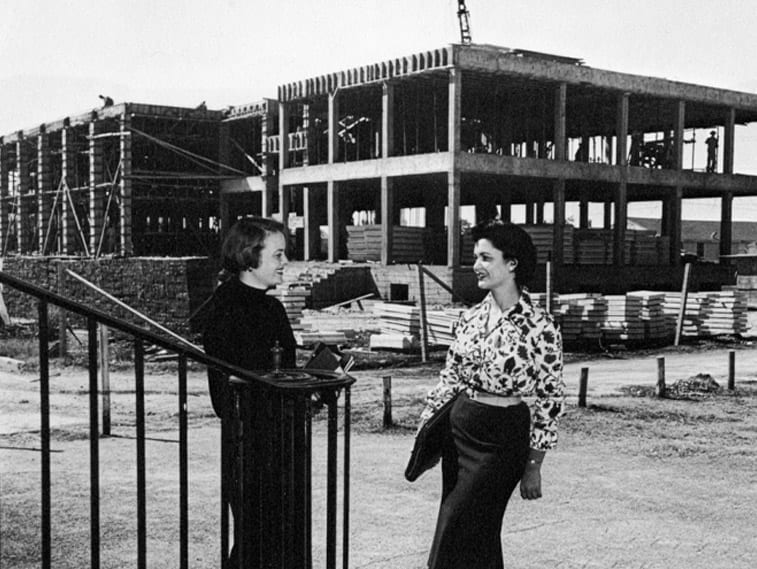
Edwin L. Cox: A Commitment to Excellence
Edwin L. Cox stands as an instrumental figure at SMU and at the business school, guiding the school through its development.
A native of Mena, Arkansas, Cox attended SMU with the class of 1942 and was a proud member of the Mustang Band. After serving in the Navy during World War II, he returned to Dallas to begin a career in oil and gas. It was then that he began contributing to SMU’s business school. He, along with several other local business leaders, actively supported the growth of the School of Business Administration. He became chairman of the Board of Trustees in 1976 and, in 1977, established the Cox Endowment Fund. In 1978, in honor of his commitment to building a nationally recognized business school, SMU’s School of Business Administration was renamed the Edwin L. Cox School of Business.
For more than 40 years, Cox has been influential in helping the school improve the quality of its students and faculty and in bringing leadership issues to the forefront of business education. His generosity has supported endowed professorships, the Business Leadership Center, the Business Leadership Institute, the Cox BBA Scholars Program and the Cox Distinguished MBA Scholars Program. A long-standing member of the SMU Cox Executive Board, Cox is also Trustee Emeritus at SMU and has served on multiple capital campaign committees at the Cox School and SMU. He has been recognized with the SMU Distinguished Alumni Award and received the first-ever SMU Volunteer of the Year award. In 2011, he was named an SMU History Maker.
The School of the Future
As the Cox School enters its second century of business education, a lot of things are going to look different, not just physically or technologically — the number of students able to earn degrees via digital classrooms every year could one day be in the thousands — but also in terms of basic curriculum.
Associate Dean of Executive Education and Graduate Programs Shane Goodwin has more than 25 years of experience in the world of finance and mergers and acquisitions. He worked at Goldman Sachs and Citigroup, and before joining the SMU faculty in 2018, he had a postdoctoral fellowship at Harvard Business School. He’s also part of the Cox School team that’s helping to redesign and modernize the structure and focus of its business education, especially at the graduate level.
Goodwin and others approached numerous employers hiring students after graduation and asked those companies what they’re looking for in job-ready students and what students will need to be future-prepared. Not surprisingly, the hard skills that people often talk about in business classes serve as a baseline expectation. But certain soft skills are what differentiate the exceptional from the typical.
Companies want to hire people who work in team environments and deliver solutions to business problems. More importantly, given the world of ambiguity we’re living in, employers want people who have the adaptability and resiliency to respond to an everchanging environment. They want students with a high level of intellectual curiosity, employees who can meet the client on Day One. Going forward, Goodwin says, the Cox School curriculum will focus on three pillars: leadership, analytics and experiential learning. “What that’s doing,” says Goodwin, “is tying in all the components we feel are necessary to help build future leaders who can be engaged, handle unstructured problems and apply those in the ever-changing digital world.”

Experiential learning of the future isn’t like that traditional capstone course of 30 years ago — the kind where students pick a company like the local doughnut shop down the street and figure out the marketing and demographics. These are highly involved, engaged projects, with corporate partners including the likes of Walmart, AT&T and McKesson. Students work on real problems in real time.
Another part of this new applied-learning approach is a project for first-year MBA students, called Unbridled Ventures. The premise: As soon as students walk in the door, they’re given their first assignment, due about eight months later.
They’ll have to bring a service or product to market — not just a business plan, but a fully tested, marketable, viable product. Students will have to gather data, create something new and test it themselves. The idea is to expand a student’s thinking the way only a market can, knowing that the vast majority of ventures will fail.
“We know that failure is an important teacher in life, and hopefully there’s going to be a lot of lessons that will be learned from doing something like this,” says Goodwin. “There’ll be a lot of failing throughout the year, but how they respond with that resiliency will be very critical.”
Both Goodwin and Myers are adamant that the pedagogy has to change, the way it always has, to match the times. It’s even more important now, because the change is coming faster and more urgently than in any prior industrial revolution.
“The old way of teaching specific disciplines in a very isolated fashion — the best business schools simply aren’t doing that anymore,” says Myers. Goodwin puts it another way: “We know it’s being disrupted,” he says. “We just want to make sure that Cox is the leader in this and not, obviously, the one getting disrupted. We want to be the ones doing the disrupting.”
“SMU and Dallas have grown and thrived together for more than a century, and the Cox School has played a pivotal role in strengthening that partnership. The school’s renowned faculty, insightful research and community collaborations have contributed to the region’s intellectual capital and booming ecosystem. Its international rankings and global alumni network have elevated the academic reputation of the school and our University. Programs that spark innovation and empower the best minds from all backgrounds to develop their full potential have created a pipeline of talent helping to shape Dallas into an economic powerhouse and creating new opportunities on a national and international scale. In its first 100 years, the Cox School has truly shaped world changers — and our world.”
— R. Gerald Turner, SMU President
“Donors to the Cox School have made a lasting impact at SMU and beyond. Scholarships have opened doors for students from all walks of life. Endowed faculty positions have attracted distinguished scholars and researchers who set the academic bar ever higher. Funding for facilities and programs has created a learning environment that prepares our students for a future we can only imagine. As a result, our graduates become the business leaders driving global prosperity. Our donors, who share our commitment to creating a world of opportunities for our students, make this possible.” — Brad E. Cheves, SMU Vice President for Development and External Affairs
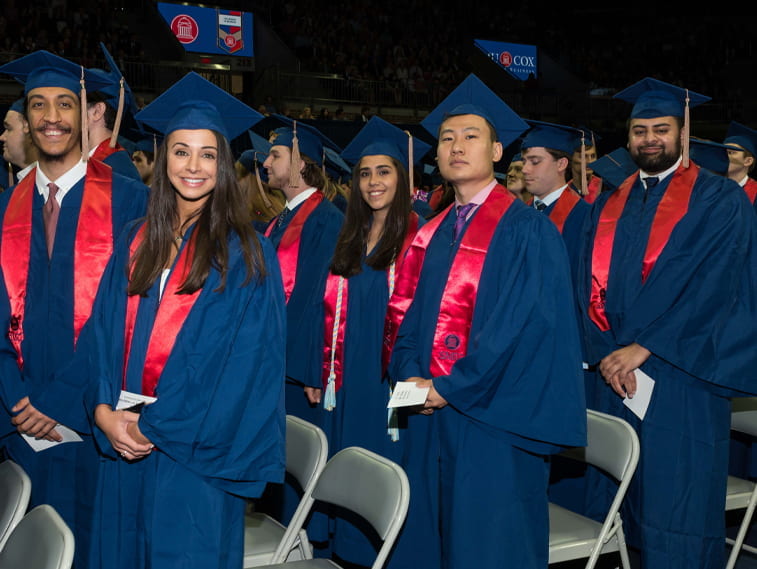
The Enduring Connection
As North Texas grows, so do the expectations for the Cox School. In the end, Amazon decided not to put a second headquarters in Dallas, but the fact that the business school at SMU played such an important role in the entire corporate courting process proves the connection between the city and the school has never been stronger.
The local business community and the business school continue to develop together. The Cox School already has relationships with regional, national and international companies.
Being on the cutting edge of so many parts of the business world and having so many ways to access these new types of business education means that even as MBA applications have gone down nationwide, they’ve gone up at the Cox School.
It’s been a long journey since the early days of school buildings on a vast, open prairie. There are more programs, scholarships and educational paths than ever before. These days, the school turns out hundreds of bachelor’s and master’s degrees every year. Once they graduate, SMU Cox alumni go on to change the direction of not just the region but the entire world.

